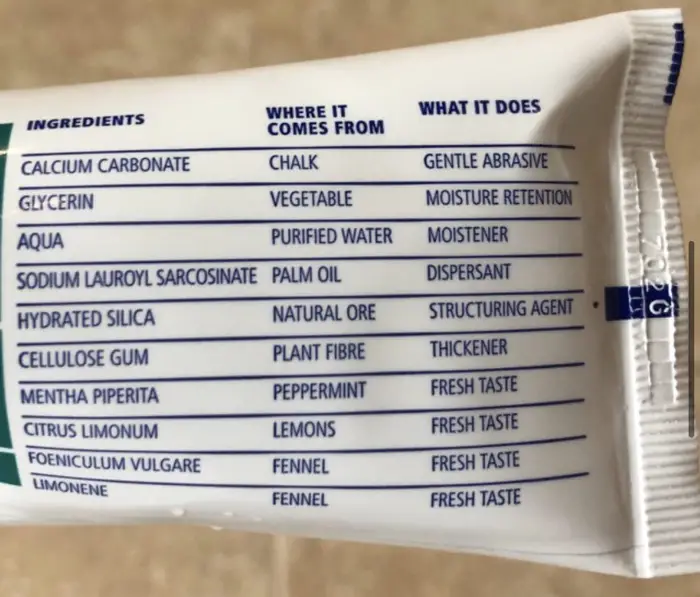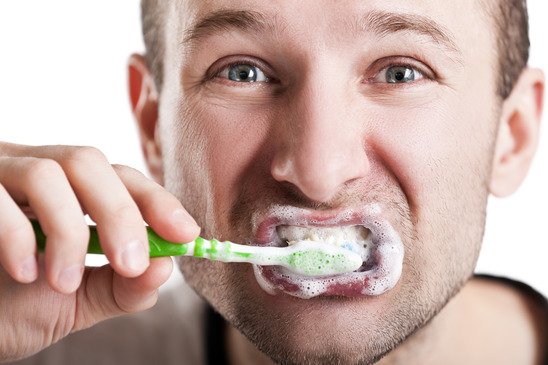Brushing your teeth is an essential part of good oral hygiene and is crucial in maintaining your overall oral health. With the promises of a healthier teeth, toothpaste has become a staple in our daily oral care routine. It’s hard to imagine a world without the familiar tube of minty-fresh paste that promises to keep our teeth clean, strong, and protected from cavities.
However, a recent wave of alternative oral care products has sparked this great debate: is toothpaste necessary? In fact, some believe that the chemical ingredients in toothpaste do more harm than good and are turning to natural alternatives to replace the white paste.
The answer is that toothpaste is not necessary when brushing your teeth. However, the use of toothpaste brings several benefits that can improve your oral health while minimizing the chances of oral health problems such as cavities, periodontal diseases, and oral cancer.
In the rest of this article, we will explore the science behind toothpaste and discuss whether it is possible to maintain good oral health without it. Whether you’re a firm believer in toothpaste or are simply curious about alternative options, read on to learn more about the importance of toothpaste!
What Is in a Toothpaste?
Over the past few centuries, toothpaste have evolved from a white, tooth powder made of ashes of ox hooves, burnt eggshells, and pumice, to the thick, white paste that we all know today. Toothpaste now come in a variety of formulations and flavors depending on its intended use and user. While the specific ingredients can vary depending on the brand and type of toothpaste, there are some common components found in most toothpastes.

- Abrasives: These help to physically ‘scrap’ off plaque, stains, and debris from the tooth surface. Common abrasives include calcium carbonate, hydrated silica, and sodium bicarbonate.
- Fluoride: This is an essential ingredient in most toothpastes, as it helps to strengthen tooth enamel and prevent cavities. Common sources of fluoride include sodium fluoride, stannous fluoride, and sodium monofluorophosphate.
- Humectants: These substances help retain moisture in the toothpaste, preventing it from drying out. Examples include glycerol, sorbitol, and propylene glycol.
- Binders: Binders are used to keep the toothpaste’s various ingredients together and maintain its consistency. Examples include xanthan gum, carrageenan, and cellulose gum.
- Detergents or Surfactants: These create foam when the toothpaste is mixed with saliva, helping to spread it around the mouth. The most commonly found synthetic detergent in toothpaste is sodium lauryl sulfate (SLS).
- Flavorings and sweeteners: These ingredients are added to improve the taste of toothpaste and make it more appealing. Common flavors include mint, cinnamon, and fruit. Sweeteners such as saccharin or xylitol may be used as well.
- Preservatives: These are added to prevent the growth of bacteria and other microorganisms in the toothpaste. Common preservatives include sodium benzoate and parabens.
- Colorants: These are added to give toothpaste its color, which is often white or light blue. Examples include titanium dioxide and various food-grade dyes.
- Additional ingredients: Some toothpastes contain additional ingredients for specific purposes, such as desensitizing agents for sensitive teeth (e.g., potassium nitrate), whitening agents (e.g., hydrogen peroxide), or antimicrobial agents (e.g., triclosan or zinc citrate).
As seen, there are numerous ingredients in a toothpaste, and these are all designed to clean your teeth, freshen your breath, and prevent tooth decay.
Is Toothpaste Really Necessary?
Toothpaste plays a significant role in maintaining good oral hygiene, but it is not the sole determinant of oral health. It is essential to understand that toothpaste is just one component of a comprehensive oral care routine that also includes proper brushing techniques, flossing, and regular dental check-ups.
In fact, toothbrush is the more important tool when it comes to brushing your teeth; the toothpaste only serve as an add-on to compliment your daily brushing. In a study conducted on 129 patients who underwent ‘dry-brushing’, the results revealed a 63% drop in the buildup of plaque and a 55% reduction in the bleeding.
Adding on, there are many other alternatives to remove plaque and freshen up your breath. For instance, mouthwash contain antiseptic ingredients that can not only kill harmful bacteria in your mouth but also freshen your breath. Flossing also work well to remove food particles and plaque between the teeth and along the gum line. However, these alternatives may not provide the same level of fluoride protection or the comprehensive cleaning that toothpaste offers.
You may be interested in: Can Toothpaste in Your Eyes Make You Go Blind?
That said, one cannot dismiss the benefits of using toothpaste. As previously mentioned, toothpaste is specially formulated with many ingredients to help remove plaque and freshen your breath. As a matter of fact, its benefits are greatly amplified by a toothbrush as the bristles act as a scrub, using the abrasive particles to dislodge the plaque from the surface of the teeth.
You may now wonder if there are other ways to clean and protect your pearly white teeth while avoiding the potentially harmful ingredients found in commercial brand toothpaste. However, many of these elements can be found in other household items such as baking soda, hydrogen peroxide, and even coconut oil. This means that to a certain extent, one can replicate the effect of a toothpaste using natural alternatives.
Will Brushing With Only Water Work?
Brushing with only water can help to remove some food particles and bacteria from your mouth, but it is not as effective as using a toothpaste. This is because the toothpaste contains ingredients that are designed to fight tooth decay, remove plaque, and kill harmful bacteria.
Also, brushing with water alone may not be enough to remove the stubborn plaque that are stuck to the surface of your teeth. This is especially if you consume sugary or acidic food and drinks regularly. If for any reason you are unable to use a toothpaste, brushing your teeth with water is still better.
To get the most out of brushing, make sure to brush thoroughly for at least two minutes, paying special attention to all surfaces of your teeth including the front, back, and chewing surfaces.
However, do not use a mouthwash to substitute water as most mouthwash contains a high level of alcohol. When left in the mouth for an extended period, mouthwash can cause a burning sensation in the gums and cheek, and lead to mouth sores.
Takeaway
To conclude, while toothpaste is not strictly necessary when brushing your teeth, it offers several benefits that can enhance the effectiveness of brushing and help maintain good oral hygiene. Toothpaste can help prevent tooth decay, remove plaque and tartar, kill harmful bacteria, and freshen your breath. However, if you are unable to use a toothpaste, brushing with water still better than not brushing at all.
Regardless of whether you choose to use toothpaste or not, it’s crucial to brush your teeth at least twice a day, floss daily, and visit your dentists regularly. By taking care of your teeth and gums on a consistent basis will you be able to enjoy a healthy and beautiful smile!







